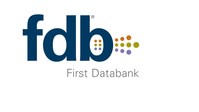View Press Releases
FDB to Explore the Pharmacist's Role in Fitting a Patient's Genes to a Drug at NCPDP Annual Conference
Learn how technology & standards can better integrate pharmacogenomics data into pharmacists' workflows to improve patient safety and outcomes
SOUTH SAN FRANCISCO, Calif., May 2, 2024 /PRNewswire/ -- Pharmacist leaders from FDB (First Databank, Inc.) will enlighten attendees at the NCPDP 2024 Annual Technology & Business Conference about one of the fastest growing and most promising new areas of precision medicine: pharmacogenomics (PGx). They will explore how standardized procedures, which can help drive a cohesive and consistent approach to PGx testing, and implementation of established and emerging technologies can better integrate pharmacists into the process of leveraging PGx data to improve prescribing decisions.
The session titled, "How Pharmacists Could Confirm if a Patient's Genes are a Good Fit for a Drug," will be Tuesday, May 7, 2024, from 11 a.m. to noon in Kierland 1C at the Westin Kierland Resort & Spa in Scottsdale, Ariz.
Presenters will be Anna Dover, PharmD, BCPS, director, product management at FDB, along with Julie Suko, PharmD, vice president, editorial content at FDB, and Jason Reed, PharmD, senior director of product management at FDB's ePrescribing network, FDB Vela™.
PGx is a field that explores the intricate interplay between an individual's genetic makeup and their response to medications. FDB's pharmacist thought leaders will offer an overview of the rapid growth and adoption of PGx testing among prescribers and large commercial and government health insurers. They will discuss why PGx presents an enormous opportunity in personalized medicine to maximize clinical benefit and patient safety by helping to determine if a specific therapy is a potential health and safety risk for a patient, would be ineffective or is the optimal drug, based on a person's DNA.
These drug knowledge experts will also discuss a major challenge facing most pharmacists currently that could result in sub-optimal care: little insight at the point of prescription fulfillment into the potential risk or efficacy of a drug based on their patients' genetic profiles, or whether any PGx tests have been conducted prior to prescribing. The presenters will describe how pharmacist workflows could be seamlessly updated with PGx information to help pharmacists keep patients safe and improve prescribing decisions.
"The enormous interest in pharmacogenomics among pharmacists is well founded given the growing body of evidence demonstrating its impact on patient care," Dr. Dover said. "At the same time, pharmacists are understandably concerned about the limited visibility they have into prescribers' decision-making using pharmacogenomics. Despite advances in clinical evidence and integrated pharmacogenomic decision support, outpatient pharmacists have been largely left out of the loop. Our goal with this session is to communicate how they can play a key role in protecting patients and promoting better outcomes."
With small modifications of fulfillment workflows, pharmacists can access PGx testing data to confirm a patient's genetic makeup supports prescribing decisions. They can also use this knowledge to recommend PGx testing to prescribers, suggest alternatives, or consult with patients. This will help further elevate pharmacists to a top-of-license role as vital care team members. They will be able to contribute more fully to the prevention of adverse drug events, to the better treatment of patients, and to the lowering of healthcare costs by helping ensure that the most effective medications are determined sooner.
The presentation will also cover the most recent developments among industry trade groups and regulatory bodies, including NCPDP, in developing guidelines for pharmacists and pharmacies that will streamline the sharing of PGx data for prescriptions. The session will offer the NCPDP audience practical and actionable steps to equip their pharmacy systems and enhance their workflows to support their full inclusion in the PGx prescribing process.
Learn more about FDB Pharmacogenomic CDS, FDB MedKnowledge® and FDB Vela™.
About FDB
FDB (First Databank) creates and delivers the world's most powerful drug knowledge that ignites, inspires, and illuminates critical medication decisions. We collaborate with our partners to help improve patient safety, operational efficiency, and health outcomes. Our drug databases drive healthcare information systems that serve the majority of hospitals, physician practices, pharmacies, payers, and all other areas of healthcare and are used by millions of clinicians, business associates, and patients every day. FDB Vela is a cloud-native electronic prescribing network that enables the seamless flow of critical medication prescription information, benefits verification, and clinical decision support between prescribers, payers, and pharmacies.
To learn more about FDB Vela, please visit https://www.fdbvela.com. For a complete look at FDB's other solutions and services, please visit https://www.fdbhealth.com/, or follow us on LinkedIn and YouTube.
About Hearst Health
The mission of Hearst Health is to help guide the most important care moments by delivering vital information into the hands of everyone who touches a person's health journey. Care guidance from Hearst Health reaches the majority of people in the U.S. The Hearst Health network includes FDB (First Databank), Zynx Health, MCG, Homecare Homebase and MHK. Hearst also holds a minority interest in the precision medicine and oncology analytics company Aster Insights. Follow Hearst Health on LinkedIn @Hearst-Health.
Contact:
Tara Stultz
Amendola Communications for FDB
M: 440-225-9595
tstultz@acmarketingpr.com
SOURCE FDB (First Databank)



